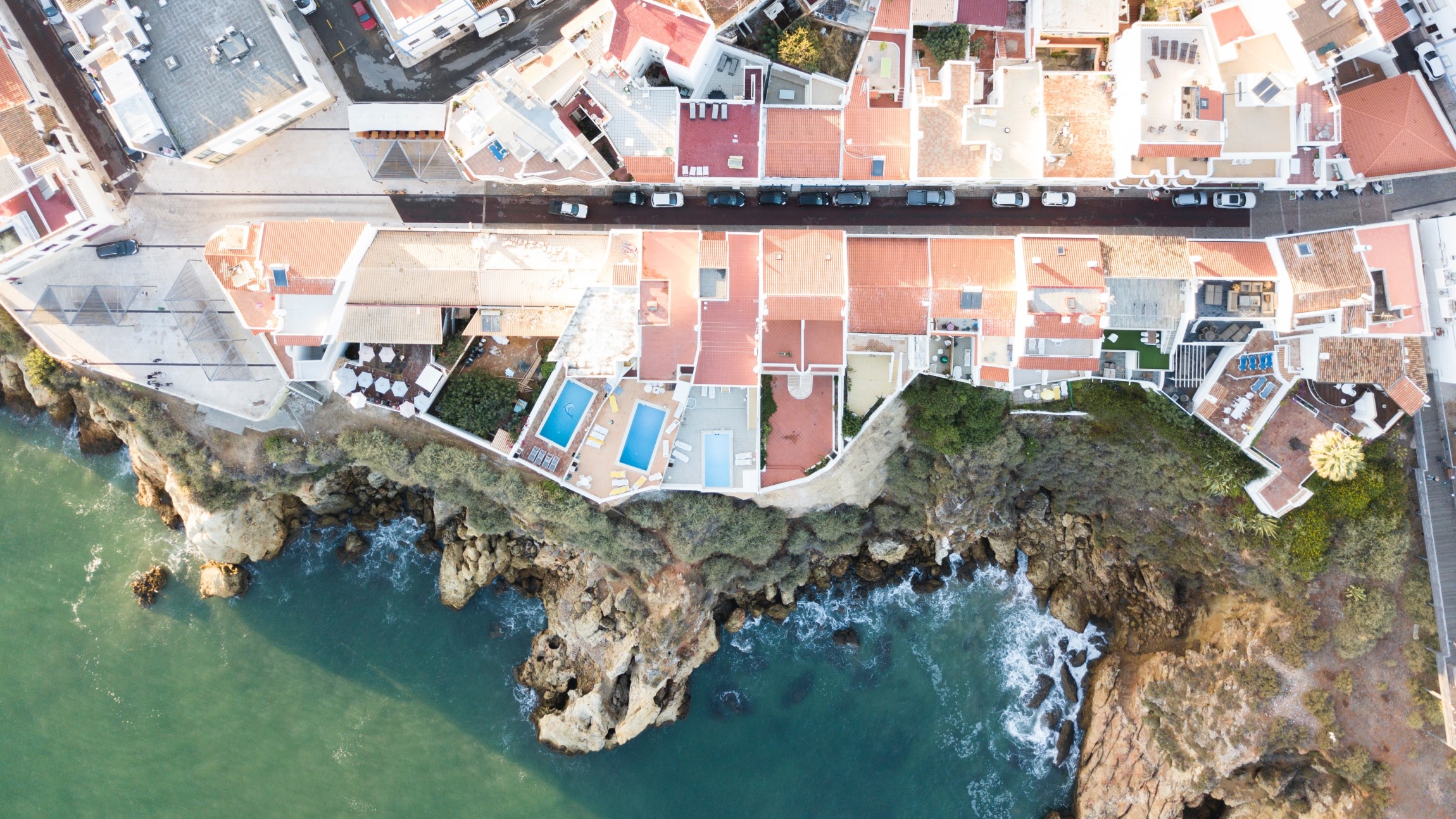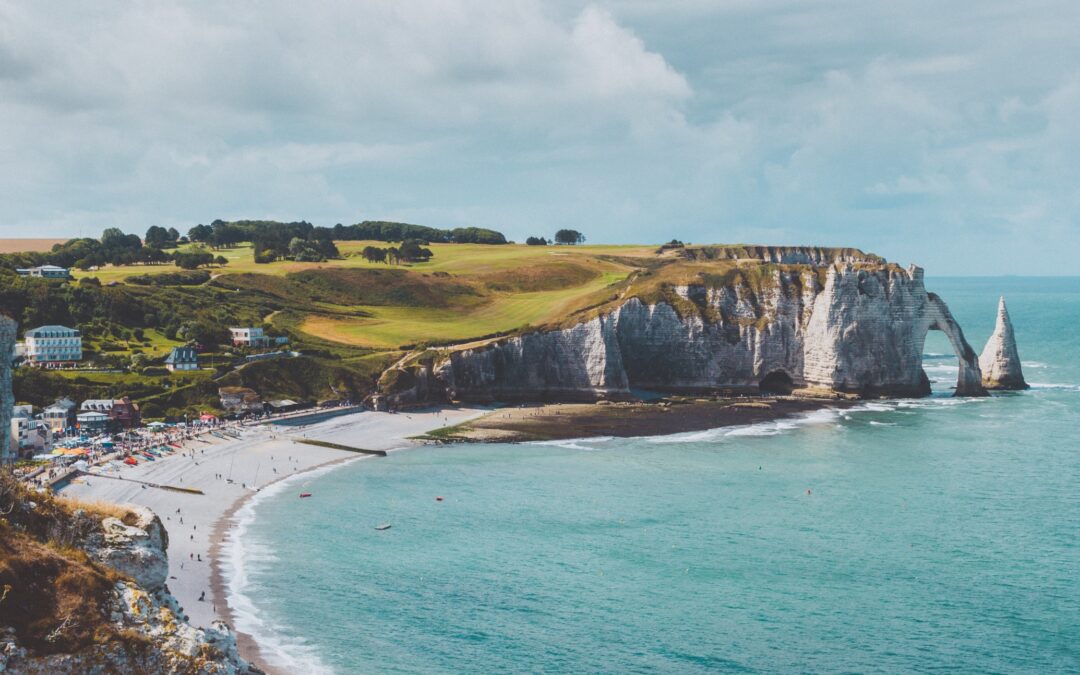
Portugal’s struggle to part with fossil fuels

Most recent
Portugal is heavily reliant on fossil fuels and its love affair with the fossil fuel industry makes transitioning to renewables a daunting task.
Portugal’s energy mix is heavily dominated by fossil fuels. Gas and oil accounted for 70 percent of its energy consumption in 2022. Gas supplied 56.07 TWh and Oil a whopping 126.91 TWh over a total of 257.74 TWh. Wind and solar provided a modest 34.76 TWh and 8.03 TWh respectively. Gas has seen massive growth since 1996, where gas wasn’t part of the energy mix at all.
Fossil fuel industry dictates policies
In Portugal the fossil fuel industry has strong ties with policymakers. This became especially apparent in the summer of 2020, when António Costa Silva, CEO at oil company Partex, was nominated to draft the country’s Strategic Vision under the national recovery plan. This raised eyebrows throughout the European Union, signaling that the fossil fuel industry was hijacking the Commission’s recovery fund to line its own pockets.
Once Silva finalized his plan in April 2021, his outline included a strong emphasis on hydrogen, held together by limited details about its execution. Portugal had created a road map where only 18.4 percent of the total funding was allocated to renewables, which was lower than the mandated 37 percent the Commission had dictated should be allocated to transition to renewable, clean energy sources.
Corporate Europe found that Portugal funneled €185 million to hydrogen and renewable gas, such as biomethane projects, which would be realized by private companies, as no public alternatives were available. Another €715 million would be allocated to industry decarbonization efforts. However, the strategic vision failed to describe how these carbon emissions reductions would be achieved, Corporate Europe highlights. The involvement of the fossil fuel industry hasn’t been denied either, with clear mention of the industry’s role in drafting the National Strategy for Hydrogen as part of its economic recovery plan.
Investigations by Corporate Europe paint a picture where the fossil fuel industry has had great influence on the proliferation and acceleration of hydrogen in Portugal. The stance of the fossil fuel companies reeked of arrogance, with the representatives claiming that it wouldn’t be the electricity companies who would lead the transition to hydrogen, but gas companies, as announced by the CEO of Portuguese oil and gas company Dourogás.
Portugal pushing gas
The reluctance to abandon fossil fuels and make it a key asset of the country’s policies is ingrained throughout its governments. This was reinforced by Portugal’s environment and climate minister, João Pedro Matos Fernandes, during a January 2021 interview with website ENDS. Portugal wants to expand its lithium mining capacity to free up the necessary funding to produce renewable gasses like hydrogen, as it is unable to move away from natural gas imports. Fernandes explained why, “Portugal doesn’t have any natural gas so we have to produce renewable gasses to ensure that our industry stays here.” Lithium mining will allow for the country to transition to cleaner energy sources and play a role in the electrification of mobility.
In March 2022, Portugal aimed to position itself as Europe’s salvation for its impending gas shortages after deliveries from Russia flatlined over the Ukraine-conflict. Minister for the Environment and Energy Transition in Portugal, João Matos Fernandes, told Reuters, “The war in Ukraine will definitely push Europe towards faster decarbonisation because it cannot rely so much on fossil fuels that it does not produce.” Adding that while the task ahead is challenging, diversity of gas imports is a must for Europe.
In June 2022, Reuters revealed that policymakers from Portugal, together with Italy, Slovakia, and other member states, wanted to delay the ban on fossil fuel phase-out dictated by the EU in 2035. The mandatory phase-out comes as EU member states have to come to an agreement to finalize the directive from the Union. The opposing members, including Portugal, want to push for a later deadline to decarbonization targets, aiming for full emissions reductions by 2040. A Bulgarian representative told Reuters that climate directives have to take socio-economic factors into account, as purchasing power varies wildly per state.
Protesting against policies
The stance from the Portuguese government didn’t go down well with many experts and citizens. In November 2022, hundreds of climate protesters went out to protest, with some forcing their way into the office building of the country’s Economy Minister, Antonio Costa e Silva, demanding his resignation. The protests arose in anticipation of the COP27 climate conference, which in the eyes of the activists only favors those with monetary interests. Student Pedro Franco told Reuters, “COPs are not designed to face climate change because it would need more participation from civil society, less participation from lobbyists from the fossil industry.” Joao Duarte added that decisive climate action is unlikely as long as governments side with fossil fuel companies.
In August 2023, Amnesty International urged southern European states, including Portugal, to take decisive action to roll out renewable, clean energy alternatives and accelerate the phasing out of fossil fuels. Amnesty International’s Director of Climate, Economic and Social Justice, and Corporate Accountability Programme, Marta Schaaf, said in a statement, “The presidents of these nations are right to highlight the urgent need to tackle the escalating climate crisis following the hottest July ever recorded.” Adding that world leaders cannot rely on passive language, basing their lukewarm attempts on generalizations to take action.
A few months later, in October 2023, climate activists blocked the Segunda Circular highway in Lisbon during rush-hour to demand decisive action for the government to tackle climate change. While the protest only lasted for five minutes, traffic was disrupted for about two hours. The protest’s location wasn’t randomly selected. Protesters gathered near GALP’s headquarters, one of the major fossil fuel corporations in the country. The organization accused GALP of willfully destroying lives and the planet.
The lack of action from these states, don’t come as a surprise. Particularly in Portugal,where in the light of its entanglement with the fossil fuel industry in creating its energy policies, little should be expected from policymakers. The dubious role of the fossil fuel industry in Portuguese environmental policies climaxed in November 2023, with the announcement of the resignation of the country’s prime minister Antonio Costa after investigations revealed possible involvement of government officials in drafting a lithium and hydrogen strategy.
Portugal goes for gas
The tensions surrounding Portugal’s energy policies have been overheating in recent years, but its foundations have been laid down at the turn of the millennium. The country has also been heavily reliant on fossil fuels imports. In order to shake off its interdependence of large oil imports, it set out to diversify its energy mix. Portugal chose, which at the time was the most logical avenue, to invest in natural gas. In 1997, natural gas was added to the nation’s energy mix, which was wholly imported from Algeria through a pipeline that transits through Spain, with liquefied natural gas imported by sea from Nigeria.
A little over a decade later, gas had become a staple within the country’s electricity supply chain. In 2008, the electricity sector accounted for 43 percent of total natural gas consumption, with industry taking up 32 percent. The strong growth of the resource has been enabled by the privatization of the energy sector in 2006, which was dictated by the EU Directive 2003/55/CE. The directive set new uniform rules for the natural gas market. As the market opened up in Portugal, the monopoly over electricity and natural gas was broken down, with two major players emerging, the EDP (Energias de Portugal) and Galp respectively. The OECD labeled this a monumental shift in marketing conditions in the country.
As time progressed, Portugal is still heavily reliant on foreign energy imports. Effectively little has changed. As the country has departed from oil imports to natural gas, liberalization has done little to diversify its energy mix. The government of Portugal has also stated, according to the International Energy Agency (IEA), that natural gas is part of the nation’s strategy to transition to renewable resources. Natural gas will act as a back-up for the nation to transition to a more efficient energy market. Essentially, policymakers in the country are saying that natural gas is, and will remain, one of the primary energy sources.
In terms of its natural gas suppliers, Portugal has been switching between its two primary suppliers, Algeria and Nigeria and adding new ones over time. In 2020, Nigeria almost completely replaced Algeria, with Qatar entering the market in 2012 and the United States in 2016. Nonetheless its imports have more than tripled between 2000 and 2020, showing that there are little plans for the near future to phase out the energy source anytime soon.
Framing climate change
A key contributor that allows for Portugal to keep pushing for fossil fuels is the media narrative that encapsulates it. Media outlets in Portugal, and Spain, have primarily been reporting on the apocalyptic implications of global warming and its downfall of society, rather than zooming in how they affect local communities, a 2019 study conducted by researchers at the Centre for Social Studies (CES) at the University of Coimbra (UC) found.
The team analyzed an upward of 500 articles, of which 217 published in Portugal between 2017 and 2018. The results showed that news publications mostly focussed on how opposite ends of the political spectrum viewed the phenomen, rather than focussing on the behavior of individuals and their role and opinions on climate change. Of the 217 publications in Portugal, only 12 articles highlighted civil society.
In the majority of cases, the team found, news outlets kept focussing on the issues, throwing about alarming statistics, but omitted whether it was direct failure of policymakers. The statistics that have been used by news broadcasters, often lacked scientific evidence. By pushing conflicting narratives, while not backed by strong evidence, might explain the reluctant attitudes toward climate change in these regions. The researchers recommended that news outlets should shift their focus on stimulating proactive behavior by individuals.
While pushing a narrative that encourages individuals in Portugal to take action is justified, when placing the carbon emissions from Portugal within the context of other European nation’s, one can find explanations why the Portuguese media chooses to shift blame outwards, rather than projecting it onto its own citizens. A briefing published by the Climate Action Research and Tracking Service for the European Parliament, found that Portugal accounted for 2.3 percent of total EU member state emissions in 2019. Per capita, Portuguese citizens emitted 6.7 tonnes CO2 equivalent (tCO2e), well below the European average, ranking Portugal with the seventh lowest emissions per capita over that period.
Corruption hampers innovation
Portugal is, and always has been, highly dependent on fossil fuels. The only diversification efforts undertaken throughout recent decades is cycling through different suppliers and pushing for further adoption of natural gas. The stance from the Portuguese government toward fossil fuels, which ultimately came to a conclusion with the Prime Minister stepping down, is a direct result of its deep entanglement with the fossil fuel industry itself. The clearest sign of this enmeshment was appointing the CEO of an oil and gas company to draft the country’s energy vision, which unsurprisingly resulted in pushing hydrogen.
Policymakers from Portugal have also been trying to weaken and delay directives introduced by the European Commission, further positioning the country as a proponent of fossil fuels, aiming to delay the inevitable phase-out of its primary energy source. Whether we see any significant change remains to be seen. In the grand scheme of things, the Portuguese government will have to comply with EU directives. Only by adopting a progressive stance and parting ways with the fossil fuel industry, can it prepare itself for a renewable future. Otherwise, its citizens will be faced with spiraling energy costs and a pariah status within the Union.
Further reading

How Columbus became the most polluted US city
In 2022, Columbus, Ohio was the most polluted city in the United States. How did the city turn into a pollution...

How coal destroys the environment
Coal is a leading actor in global warming. Creating an unprecedented rate of environmental destruction in its...

How green is Shell?
Shell has made massive investments in renewable energy, but is it as green as it claims to be? Shell is one of the...
Most recent

How Myanmar lost 30% of its forest in 30 years
Myanmar is seeing deforestation rates increase rapidly. In the last three decades, the country already lost 30 percent...

Climate change spells uncertain future for winemakers
Winemakers ride into an uncertain future as climate change spells greater uncertainty for their businesses. Climate...

How Microsoft aims to make its data centers more efficient
Microsoft is rapidly expanding its data center fleet, whilst simultaneously experiencing soaring energy costs and...


